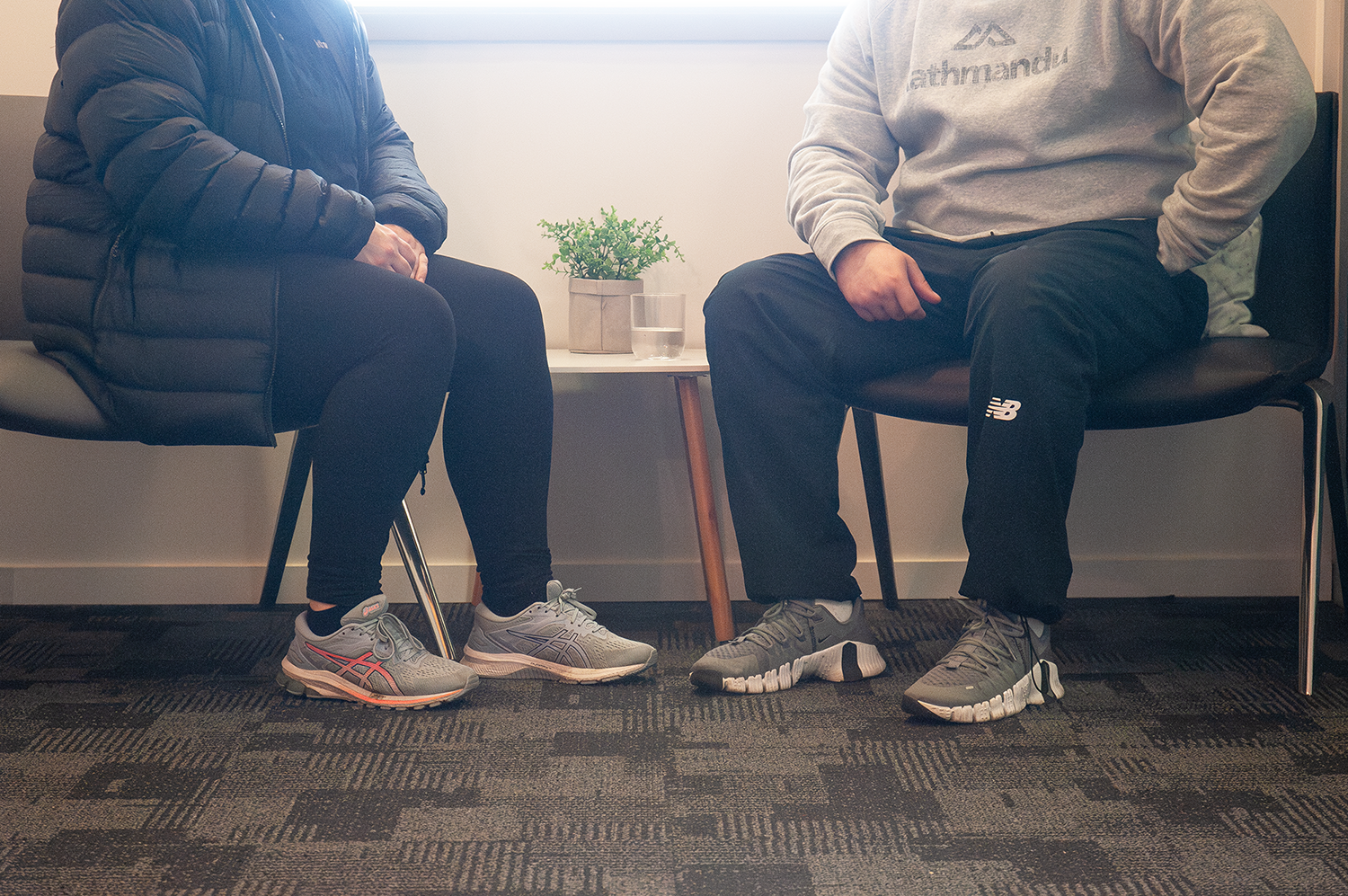Evaluating the Navigate Initiative.
Something we get asked a lot at Pathway is how we measure the successes of the people we work with who are making powerful change in their lives each and every day.

This infographic represents a key statistic from the report: Of 65 men who completed the NI, four were resentenced, and two were reimprisoned within 12 months.
Success means different things to different people. It may be landing a dream job, buying the perfect home, living a positive lifestyle or making memories with loved ones. To the men part of the Navigate Initiative creating a new life for themselves is what success looks like, which comes with a willingness and commitment to make a fresh start.
A recent evaluation of the initiative carried out by Independent Research Solutions shows our Tū Ora are embracing the programme on a level not seen in traditional reintegration settings, with the numbers to back it up.
The evaluation, led by Drs Jarrod Gilbert, Ben Elley and report writer Mel Jessep, looked at reoffending levels of men that had been part of the NI and back in the community compared to a general population sample; life inside the NI unit; Tū Ora’s initial return to the community, and the NI from the perspective of Pathway and Corrections staff.
Navigate Initiative participants were 47.7% less likely to be resentenced and 50% less likely to be reimprisoned than a control group.
Dr Jarrod Gilbert and his team conducted the analysis using a matched sample of 195 comparable individuals from Christchurch Men's Prison, selected based on demographics, offending history, and programme completion, and comparing their 12-month recidivism rates.
Pathway reintegration manager Aland Fish says the statistics are encouraging. “The stats speak for themselves. The intention...is to reduce reoffending and we are evidencing that, so actually why wouldn’t you support it? It’s in everybody’s interests to work together.” Nine Tū Ora were interviewed a week prior to and then at least three months after release as part of the evaluation.
1. They said living with up to three others in a flatting-like situation on prison grounds meant they were able to work together to develop essential skills, like cooking, budgeting and cleaning, all practical skills they found valuable.
2. A less restrictive atmosphere gave Tū Ora more chances to communicate and socialise with each other to help rebuild these skills, which they said had diminished because they were often suppressed in the mainstream prison environment.
3. Tū Ora found real value in the workshops provided by the NI, particularly those based around art and faith. They enjoyed the opportunity to interact with the volunteers from outside prison who run them, as it gave Tū Ora an opportunity to connect with people from outside and put their social and communication skills to the test.
4. Tū Ora also considered community outings, like supervised trips to the library or supermarket, as the ideal way to help acclimatise themselves to life on the outside.
5. They said this meant they felt well- prepared for release, particularly those who had been in prison before but not part of the NI, and that many found their day of release a positive, comfortable experience thanks to Pathway’s support.
Evaluations such as this paint a picture of what everyone involved is getting out of the NI, its effectiveness and what we can do to make it even better. It’s encouraging to see the potential the NI has in making our community a stronger and safer place for all, as we continue to help people make a fresh start.
Names have been changed.





